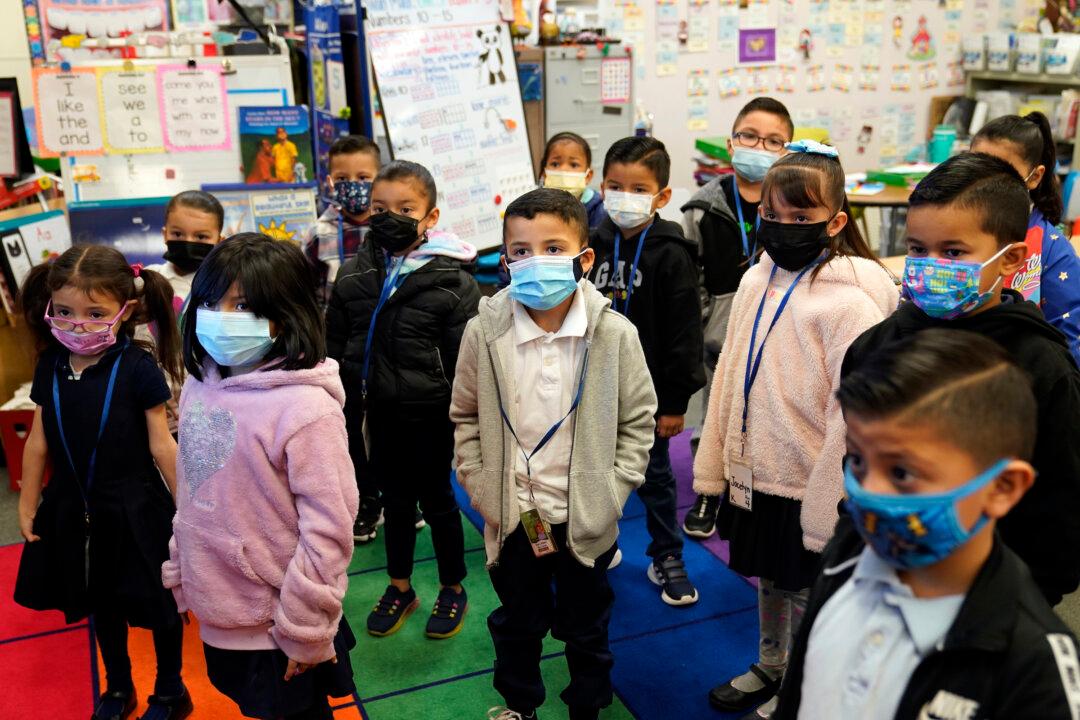Requiring masks in schools was popularized during the COVID-19 pandemic, but a new study has concluded there was no link between masking in schools and COVID-19 cases.
A widely cited study published by the Centers for Disease Control and Prevention (CDC) in its quasi-journal in 2021 concluded schools without masking requirements were 3.5 times more likely to have COVID-19 outbreaks, defined as a cluster of COVID-19 cases.






